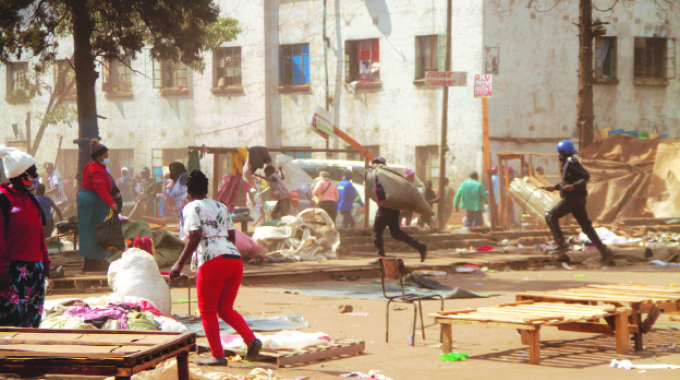Kaunda, a champion for an AIDS-free generation

Tendai H Manzvanzvike
Zimpapers Knowledge
Centre Head
ZAMBIA’S founding president Dr Kenneth Kaunda was unique in many ways.
Known by many for his trademark suits, white handkerchiefs and love of music, Dr Kaunda passed away on June 17, at the age of 97.
He will forever be remembered for his rallying calls to unify Zambians and Africans with: “One Zambia, one nation.”
An unquestionable fighter for freedom from settler colonialists, President Kaunda, affectionately known as “KK” was also called Africa’s “weeping president,” who loved to sing his favourite song, dating back to the time he fought for Zambia’s freedom, “Tiyende Pamodzi nimu ntima umo”, which means: “Let us have one heart, one spirit; we work together so that we can develop. If you have different opinions, you can’t achieve the right goals.”
This piece salutes KK for his magnanimity in the face of another adversity — the devastating HIV and Aids pandemic in the early 1980s.
He applied the same commitment he used when fighting colonisers, to ensure stigma and discrimination would not be used against people affected and infected by HIV and Aids.
It took the death of President Kaunda’s son for people to realise that HIV and Aids was no respecter of persons.
Thus Dr Kaunda became a pioneer of dismantling stigma and discrimination against people affected and infected by the deadly disease.
When his son Masuzgo Gwebe died of HIV and Aids in 1986, Dr Kaunda revealed the cause of death in 1987.
Thereafter, he went on a crusade against HIV, calling on the international community to support efforts to stamp out the spread of the virus.
“It does not need my son’s death to appeal to the international community to treat the question of AIDS as a world problem. It is something that is so serious that once again, I plead with the World Health Organisation and those in a position to help fund the campaign against AIDS”, he said.
KK also told Reuters news agency in 2002, “We fought colonialism. We must now use the same zeal to fight AIDS, which threatens to wipe out Africa. This is the biggest challenge for Africa. We must fight AIDS and we must do so now.”
He took his crusade around the globe and The Times of India’s online edition reports that in March 2005, Zambia’s former leader who was visiting India made an impassioned plea: “The death rate could have been controlled to a large extent if the affected parents or relatives were more open about the disease.
“I got tested myself for HIV/Aids, but the result has been negative. I wish I had tested positive. That would have helped me immensely, fight the stigma and discrimination surrounding the deadly HIV/Aids infection”, admitting that he would have otherwise openly announced to the whole world.
Dr Kaunda added, “Our learning in the African continent in general, and Zambia in particular, has given us various insights that this is not just a medical problem but it needs to be addressed at the society and family level too.
“The problem has to be tackled along with the medical side by addressing the stigma, confronting the wall of silence and pushing for preventive measures.”
KK’s clarion call to fight HIV and Aids and accompanying stigma yielded results.
According to Inter Press Service, Zimbabwe’s Vice President Dr Joshua Mqabuko Nkomo followed KK’s openness, following the death of his son Earnest Thuthani’s in 1996.
Dr Nkomo, revealed that his son had died of HIV and Aids. “He is not alone. Thousands of young people are dying of this (Aids) thing, but people hide the truth,” he said in his graveside speech. The late South African President Nelson Mandela also did the same. When his son Makgatho died in 2005, Mandela revealed that he had died of HIV and Aids, maintaining that to hide the illness would wrongly imply that it was shameful.
“This is why I have announced that my son has died of Aids. Let us give publicity to HIV/Aids and not hide it, because the only way to make it like a normal illness like TB, like cancer, is always to come out and say somebody has died because of HIV/Aids, and people will stop regarding it as something extraordinary for which people go to hell and not to heaven,” Mandela said.
Today, as another deadly virus — Covid-19 ravages the world, Africa remembers the late Zambian leader for refusing to keep quiet, and for protecting citizens who were suffering the effects of HIV and Aids, and the prevailing discrimination.
KK showed that it was about time that superstitions, taboos, stigma, stereotypes and discrimination around disease are dealt with, by speaking openly about the diseases.
We cannot go round in circles when scientific evidence shows that a large percentage of people infected by these viruses will not develop deadly complications. Instead, people should follow the guidelines given by health professionals, in association with the World Health Organisation.
But history has been a good teacher. We now look back and realise that there is nothing new under the sun. The most important issue is awareness and following the prescribed guidelines, and not discriminating against each other.
Dr Kaunda fought for an HIV and Aids-free generation, but with his demise, he passed the baton to today’s and tomorrow’s generations, to win the fight, and win good.










Comments